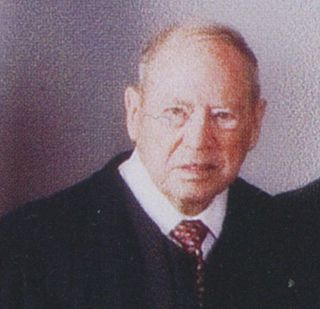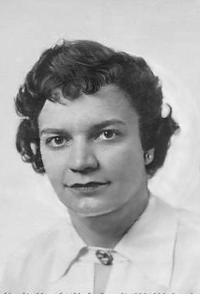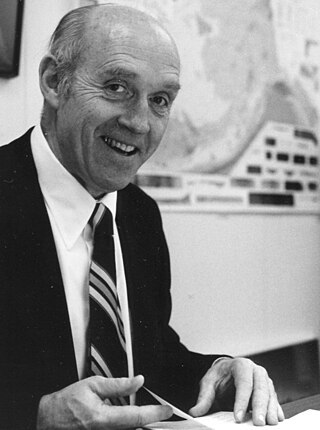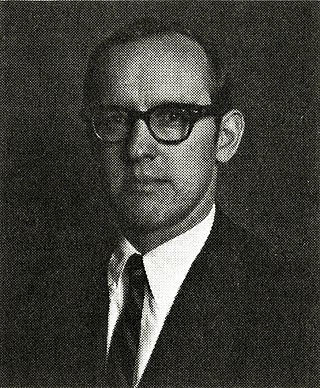Related Research Articles

Frances Ann "Fran" Ulmer is an American administrator and Democratic politician from the U.S. state of Alaska. She served as the seventh lieutenant governor of Alaska from 1994 to 2002 under Governor Tony Knowles, becoming the first woman elected to statewide office in Alaska, and lost the 2002 gubernatorial election against Republican Frank Murkowski. In 2007 she became the Chancellor of the University of Alaska Anchorage (UAA), before serving as Chair of the United States Arctic Research Commission between 2011 and 2020, appointed by President Barack Obama.

The University of Alaska System is a system of public universities in the U.S. state of Alaska. It was created in 1917 and comprises three separately accredited universities on 19 campuses. The system serves nearly 30,000 full- and part-time students and offers 400 unique degree programs.

The University of Alaska Anchorage (UAA) is a public university in Anchorage, Alaska. UAA also administers four community campuses spread across Southcentral Alaska: Kenai Peninsula College, Kodiak College, Matanuska–Susitna College, and Prince William Sound College. Between the community campuses and the main Anchorage campus, roughly 15,000 undergraduate, graduate, and professional students are currently enrolled at UAA. It is Alaska's largest institution of higher learning and the largest university in the University of Alaska System.
Seattle University School of Law is the law school affiliated with Seattle University, located in Seattle, Washington, United States.
The Alaska Law Review is an academic law journal that is devoted to legal issues relating to the State of Alaska. First published in 1971, since 1984 it has been published by students at Duke Law School in Durham, North Carolina every June and December. The journal is not published in Alaska, because no law school operates within the state. The Alaska Law Review is funded by the Alaska Bar Association and a copy of the Alaska Law Review is provided to every Alaskan attorney as part of the dues to the Alaska Bar Association.

The Willamette University College of Law is the law school of Willamette University. Located in Salem, Oregon, and founded in 1883, Willamette is the oldest law school in the Pacific Northwest. It has approximately 29 full-time law professors and enrolls about 332 students, with 120 of those enrolled in their first year of law school. The campus is located across the street from the Oregon State Capitol and the Oregon Supreme Court Building; the College is located in the Truman Wesley Collins Legal Center.
John E. Manders was Mayor of Anchorage, Alaska from 1945 to 1946 and a leading voice among opponents of Alaskan statehood.

Sean Randall Parnell is an American attorney and politician who was the tenth governor of Alaska from 2009 to 2014. He succeeded Sarah Palin in July 2009, and was elected governor in his own right in 2010 with 59.06% of the vote, as the largest percentage margin of any Alaska governor since the state's admission into the United States. In 2014, he narrowly lost his bid for re-election and returned to work in the private sector. He is a member of the Republican Party.

Mahala Ashley Dickerson was an American lawyer and civil rights advocate for women and minorities. In 1948 she became the first African American female attorney admitted to the Alabama State Bar; in 1951 she was the second African American woman admitted to the Indiana bar; and in 1959 she was Alaska's first African American attorney. In 1983 Dickerson was the first African American to be elected president of the National Association of Women Lawyers. Her long legal career also helped to pave the way for other women attorneys. In 1995 the American Bar Association named her a Margaret Brent Women Lawyers of Achievement honoree.
Prince William Sound College is a college located at 303 Lowe St. in Valdez, Alaska. PWSC comprises one main campus in Valdez and extension campuses in Glennallen and Cordova. The college is part of the University of Alaska Anchorage under the aegis of the University of Alaska System.

James Martin Fitzgerald was an American lawyer and judge. He served as an associate justice of the Alaska Supreme Court from 1972 to 1975, and resigned that position when he was appointed to serve as a United States district judge of the United States District Court for the District of Alaska.

Joseph Wayne Miller is an American attorney and politician. He is best known as the runner-up in both the 2010 United States Senate election in Alaska and the following 2016 election. A member of the Republican Party, he faced Lisa Murkowski in both races, and has aligned himself with the Libertarian Party and Constitution Party.

The Alaska Airlines Center is a 5,000-seat multi-purpose arena in Anchorage, Alaska. It is located on the campus of the University of Alaska Anchorage (UAA) and adjacent to Providence Alaska Medical Center (PAMC).

Michael James Dunleavy is an American educator and politician serving since 2018 as the 12th governor of Alaska. A Republican, he was a member of the Alaska Senate from 2013 to 2018. He defeated former U.S. senator Mark Begich in the 2018 gubernatorial election after incumbent governor Bill Walker dropped out of the race. He was reelected in 2022.
Robert Ladd Eastaugh is an American lawyer and jurist who served on the Alaska Supreme Court from 1994 to 2009. He is the grandson of R. E. Robertson and was formerly in private practice associated with the law firm founded by his grandfather.

Dove Kull (1897-1991) was a social worker from Oklahoma. After a 37-year career in Oklahoma, serving as second-in-command of the Works Progress Administration and later designing the Oklahoma Department of Public Welfare's adoption policies, Kull moved to Alaska and became the first social worker to administer service to Native Alaskans in the Aleutian Islands. She also secured the funds for the first child care center in Alaska and directed the first home-health service for the elderly in the State. She was posthumously inducted into the Alaska Women's Hall of Fame in 2015.

Ruth Anna Marie Schmidt was an American geologist and paleontologist who was a pioneer for women scientists. She spent most of her career in Alaska, where she established a United States Geological Survey (USGS) field office and established the first Department of Geology at the Anchorage Community College, now part of the University of Alaska Anchorage. In 1964, Schmidt directed the initial assessment of the damage done to the city of Anchorage by the Great Alaska Earthquake, the largest earthquake in North American history, and the second largest earthquake ever to be recorded. She worked for the USGS in Washington, DC during the era of McCarthyism and was investigated twice for disloyalty because of her membership in the interracial Washington Cooperative Bookshop. She was cleared both times. She earned a number of awards, honors, and letters of commendation and appreciation. After her death in 2014, she was recognized as a philanthropist.

John R. Roderick was an American lawyer and politician who served as the mayor of Anchorage, Alaska from 1972 to 1975.

John Eric Havelock was the Attorney General of Alaska from 1971 to 1973, a champion of individual privacy and Native American resource and subsistence rights. Born in Toronto, Canada, Havelock moved to the United States and attended first boarding school, then Harvard University for an undergraduate degree and a Juris Doctor degree before moving to Alaska. After working for the Alaska Department of Law, Havelock worked as staff at the White House before his appointment as Attorney General of Alaska in 1970.
References
- ↑ Filling a Need, Seattle University School of Law, Jan. 12, 2015
- ↑ American Bar Association (ABA) Gives Approval for a Satellite Campus of Seattle University School of Law at Alaska Pacific University, Alaska Pacific University, Dec. 15, 2014
- ↑ UAA Law School Partnerships
- ↑ Video: 49th Star. Alaska Statehood, New Flag, Official, 1959/01/05 (1959). Universal Newsreel. 1959. Retrieved February 20, 2012.
- 1 2 Corley, Asta (March 26, 2001). "Law Review Is One More Thing Setting Alaska Apart". Anchorage Daily News . p. B2. Retrieved December 21, 2013.
- ↑ Havelock, John E. (1975). Legal Education for a Frontier Society: A Survey of Alaskan Needs and Opportunities in Education, Research and the Delivery of Legal Services (PDF) (Report). University of Alaska . Retrieved December 21, 2013.
- 1 2 3 Legal Education for a Frontier Society: A Survey of Alaskan Needs and Opportunities in Education, Research and the Delivery of Legal Services (Report). UAA Justice Center. 2013. Retrieved December 21, 2013.
- 1 2 3 4 Havelock, John (January 12, 2008). "An Alaska Law School Would Benefit All". Anchorage Daily News. Retrieved December 21, 2013.
- 1 2 Chappell, Ronnie (May 30, 1986). "Fighting for a Vision of Freedom Ken Cole Says He Wants to Help Others Use the Courts to Protect Their Rights". Anchorage Daily News. p. B1. Retrieved December 21, 2013.
- ↑ "House District 8, Soldotna Seward". Anchorage Daily News. October 27, 1996. p. Z22. Retrieved December 21, 2013.
- ↑ Lambert, Frances (June 16, 1989). "Faculties Join Together for University Paralegal Program". Anchorage Daily News. p. C2. Retrieved December 21, 2013.
- 1 2 "Law School Program". Business Notebook. Anchorage Daily News. October 6, 1994. p. D1. Retrieved December 21, 2013.
- ↑ Rennie, Douglas C. (June 2012). "Rule 82 & Tort Reform: An Empirical Study of the Impact of Alaska's English Rule on Federal Civil Case Filings". Alaska Law Review . 29 (1): 28, footnote 182. Retrieved December 21, 2013.
- ↑ "Alaskans Get Scholarship Money for Seattle U". Seattle Times . December 7, 1999. p. B2. Retrieved December 21, 2013.
- 1 2 "Scholarship to Help Law Students". State News. Anchorage Daily News. December 9, 1999. p. B3. Retrieved December 21, 2013.
- 1 2 Schubert, Ruth (December 15, 1999). "SU President Has Generous Parents Their $1 Million Gift Benefits Alaska Students". Seattle Post-Intelligencer . p. C10. Retrieved December 21, 2013.
- ↑ Schubert, Ruth (August 17, 1999). University's New Law School Building Opening One-Time Ups Students Will Exit Tacoma. p. B1.
{{cite book}}:|work=ignored (help) - ↑ Pokorski, Doug (January 10, 2001). "Law Libraries to Receive Lincoln's Legal Papers". Springfield State Journal-Register . p. 11.
- 1 2 3 Havelock, John (February 10, 2003). "Think Differently for Alaska's Future". Anchorage Daily News. p. B4. Retrieved December 21, 2013.
- ↑ "Kirk Wickersham: Board of Regents". University of Alaska System. 2013. Retrieved December 21, 2013.
- ↑ Corporate Records & Business Registrations (May 16, 2003). Alaska Law School, Inc (Report). Alaska Department of Commerce. 032489R.
{{cite report}}:|author=has generic name (help) - ↑ "Community Datebook". Anchorage Daily News. June 2, 2003. p. B2. Retrieved December 21, 2013.
- ↑ Grutter v. Bollinger , 539U.S. , 306(2003).
- ↑ AN ALASKAN LAW SCHOOL: IS IT FEASIBLE?, University of Alaska Anchorage INSTITUTE OF SOCIAL AND ECONOMIC RESEARCH, Feb. 2004
- ↑ Bralove, Alisa (April 9, 2004). "Maryland Only One of 10 States not Requiring Continuing Legal Education for Lawyers". Daily Record . Baltimore, MD. Retrieved December 21, 2013.
- 1 2 "Terry C. Aglietti". Aglietti, Offret & Woofter. 2013. Retrieved December 21, 2013.
- ↑ Corporate Records & Business Registrations (April 16, 2007). Alaska School of Law, Limited (Report). Alaska Department of Commerce. 107931.
{{cite report}}:|author=has generic name (help) - 1 2 3 Wickersham, Kirk (December 27, 2007). "Alaska Would Benefit from Homegrown Lawyers, Judges". Anchorage Daily News. p. B5. Retrieved December 21, 2013.
- ↑ "Attorneys". Aglietti, Offret & Woofter. 2013. Retrieved December 21, 2013.
- ↑ Corporate Records & Business Registrations (March 7, 2008). Alaska School of Law, Limited (Report). Alaska Department of Commerce. 112774.
{{cite report}}:|author=has generic name (help) - 1 2 3 "Lawmaker Wants Alaska's 1st Medical, Law Schools". Juneau Empire . December 29, 2010. Retrieved December 21, 2013.
- 1 2 Cockerham, Sean (January 8, 2011). "Smorgasbord of Bills Fill Legislative Plate". Anchorage Daily News. Retrieved December 21, 2013.
- 1 2 "HB 38: Alaska 27th Legislature (2011-2012)". Open States. January 2011. Retrieved December 21, 2013.
- ↑ Cockerham, Sean (February 6, 2011). "Can Alaska Grow Doctors, Lawyers?". Anchorage Daily News. Retrieved December 21, 2013.
- ↑ Olson, Walter (January 13, 2011). "A Law School for Alaska?". Overlawyered . Retrieved December 21, 2013.
- 1 2 "Legislature Should Lay Aside Idea of an Alaska Law School". Empire Editorial. Juneau Empire. January 16, 2011. Retrieved December 21, 2013.
- 1 2 3 "Alaska Bar, Courts Support Satellite Campus in Anchorage". Targeted News Service. November 12, 2013. Retrieved December 21, 2013.
- ↑ "House Bill 43: University Institutes of Law and Medicine". States News Service. February 5, 2013. Retrieved December 21, 2013.
- ↑ "House Bill No. 43". Alaska State Legislature. February 5, 2013. Retrieved December 21, 2013.
- ↑ Seattle University Plans Branch Law Campus in Alaska, Law.com, June 11, 2014
- ↑ Seattle University School of Law reaches agreement to house satellite law campus at Alaska Pacific University, Alaska Pacific University, June 17, 2014
- ↑ Filling a Need, Seattle University School of Law, Jan. 12, 2015
- ↑ American Bar Association (ABA) Gives Approval for a Satellite Campus of Seattle University School of Law at Alaska Pacific University, Alaska Pacific University, Dec. 15, 2014
- ↑ UAA Law School Partnerships
- ↑ UAA partners with Willamette University College of Law to expand Alaskans’ access to a legal education, Willamette University College of Law, May 28, 2021
- ↑ CWRU Law Signs Partnership Agreements with Six Colleges Enrolling Historically Underrepresented Minorities, Case Western Reserve University School of Law, Oct. 21, 2021